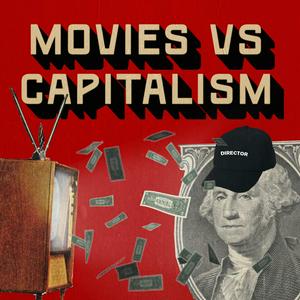This week, Frank is joined by comedian and actress Andrea More (STICK) and returning guest Mike Benner (Bob’s Burgers) to talk about the Paul Rudd/Jason Segel bromantic comedy I Love You, Man. Together, they unpack the epidemic of male loneliness, the pitfalls of toxic masculinity, and how male friendships are portrayed on screen—especially compared to female ones.
🤝 TO HEAR THE FULL EPISODE SUBSCRIBE TO OUR PATREON 🤝
www.patreon.com/movies_vs_capitalism
For next week’s movie, we’ll be watching John Sayles’ union drama Matewan.
MVC donates its ad space to progressive or leftist causes and organizations. If you’re interested in promoting your work, email us at
[email protected].
Editing by John Patrick | Artwork by Rufus Paisley | Theme song by JustBen


